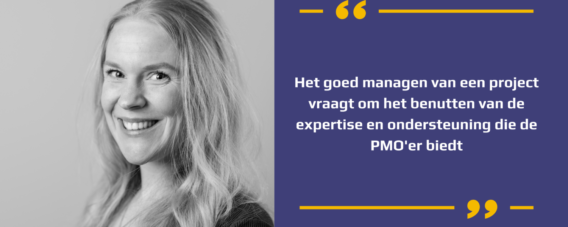Author: Arjen de Bake, Principal Consultant at Davinci | published in @Infance
Buying, selling, or renovating a home, we all know it involves a lot of paperwork. Still, when my partner and I bought our house, I was surprised by the sheer volume of documents we had to submit to the selling agent, the mortgage advisor, and the notary. Even copies of our ID had to be sent to multiple parties. Time-consuming and unnecessary.
In other European countries, you no longer have to send these copies. Consumers there can use a digital identity. So why not in the Netherlands? At Davinci, we’re working on several initiatives that will have a major impact on financial services in 2023.
A drastic change
As digitalization continues to advance, it’s now possible for consumers to legally identify themselves online at the highest level of trust to sign documents and share data with other parties. The European Union is currently developing the EU Digital Identity Wallet: a digital wallet that stores your identity details, financial data, professional credentials, and more. With this wallet, consumers can place qualified electronic signatures and share only the data required, a practical interpretation of data minimization. Once introduced, its acceptance will be mandatory across many sectors, including financial services. At the same time, numerous private parties are working on new authentication tools that meet EU security and trust standards. One thing is certain: this will radically reshape processes and business models both in and beyond financial services.
Interesting playing field
At Davinci, we’re working closely with the market to create smart digital solutions that make financial sector processes more efficient, accessible, user-friendly, and transparent. These solutions will significantly reduce paperwork for consumers, for example in their home-buying journey. Industry players are actively searching for answers to challenges around the proper handling of BSN (Dutch citizen service numbers), ID copies, and the use of validated data for Wft compliance and credit assessments. At the same time, they must address AML/KYC regulations, privacy requirements, and customer value. It’s a complex balancing act — and one where Davinci provides both strategic thinking and practical guidance.
Goed IDee
One of the initiatives Davinci is involved in is Goed IDee, meaning Good IDea, launched by HDN and Vidua Wonen. This project demonstrates how identity data can be securely shared without needing ID copies. It also shows how consumers can place legally binding, qualified digital signatures on agreements.Today, many contracts still require a handwritten signature, which complicates automation and data exchange. While there are digital alternatives, they often fall short of meeting eIDAS standards, but Goed IDee does meet those requirements.
Zorgeloos Vastgoed
The second initiative is Zorgeloos Vastgoed, where professional associations and industry groups join forces to improve access to real estate data. Together, they’re working on a common framework, the afsprakenstelsel, that defines a shared technical language, digital ID, e-signatures, and consumer data control across the real estate chain. This initiative connects real estate agents, notaries, financial advisors, lenders, and software vendors. The goal? Make the administrative side of buying a home simpler, and give consumers more control and oversight of their data.
Dutch Blockchain Coalition
Lastly, through the Dutch Blockchain Coalition (DBC), Davinci is also involved in the Ondernemingspaspoort, a digital business passport. Together with public and private partners, including the Chamber of Commerce, KNB, ABN AMRO, and the Dutch Tax Authority, we’re exploring how wallets can be used by businesses. Since August 1, 2021, European citizens must be able to incorporate a private limited company fully online. The Ondernemingspaspoort makes this easier by simplifying business registration, opening bank accounts, and obtaining insurance. It focuses heavily on digital identification, e-signatures, authorisations, and legal representation. Davinci leads the program management for this unique collaboration on behalf of the DBC.
Awaiting the Digital Government Act
At the European level, the eIDAS Regulation already requires public and semi-public organisations to accept EU-recognised login methods for digital services. It paves the way for secure, seamless digital interactions across borders, if provided that consumer data is well protected and authentication is strong. eIDAS defines exactly what that “lock on the digital door” should look like. In the Netherlands, we’re still waiting for the to be finalised this year. Once enacted, it will enable major progress in data exchange between public and private domains. Davinci is ready. We’ve been preparing for this shift for years, and in 2023 it’s finally taking off, even beyond the financial sector.
Impact on financial services
Wij geven bovengenoemde initiatieven sturing met een visie dat alle consumenten binnen enkele jaren allemaal een gekwalificeerd middel hebben, waarmee zij zich zowel privaat als publiek kunnen identificeren, stukken ondertekenen en gegevens uitwisselen. Dan is het niet meer nodig dat je als consument op drie plaatsen een kopie ID-bewijs moet aanleveren en stukken moet uitprinten, paraferen en/of ondertekenen om vervolgens te scannen (zoals ik moest doen toen ik mijn huis kocht). Deze verandering gaat het financiële leven van de consument dit jaar al een stuk makkelijker maken.
With the above initiatives, we’re working toward a vision where every consumer will soon have a qualified digital tool to identify themselves, sign documents, and share data, both publicly and privately. That means no more sending your ID copy to three different places, no more printing and signing documents by hand, and no more scanning and re-uploading them. This shift is already making financial life easier for consumers, and 2023 is only the beginning.
Did this story catch your interest? Get in touch with Arjen de Bake.





